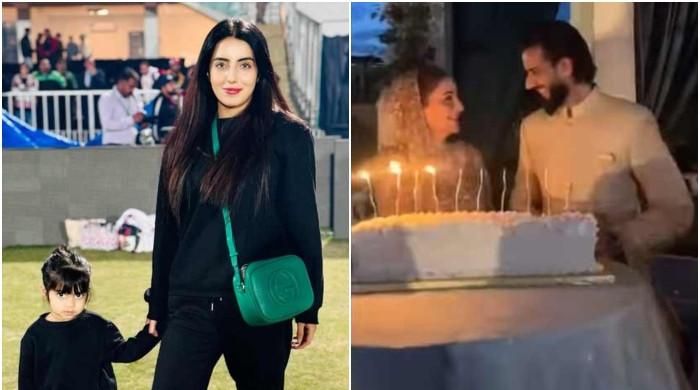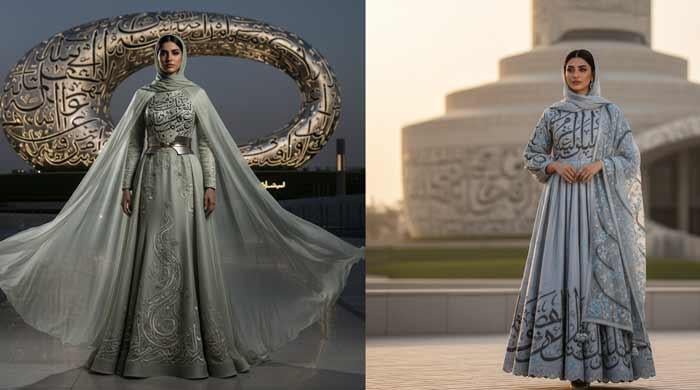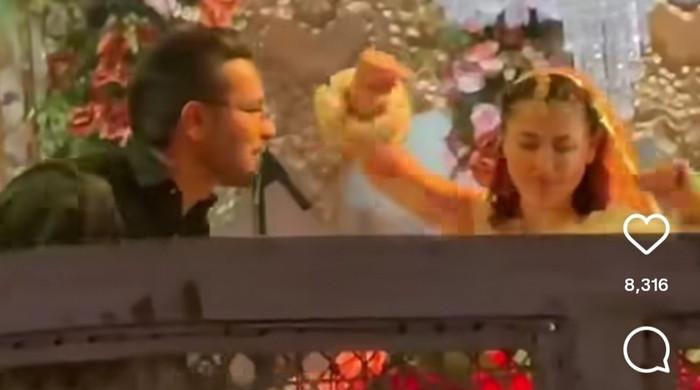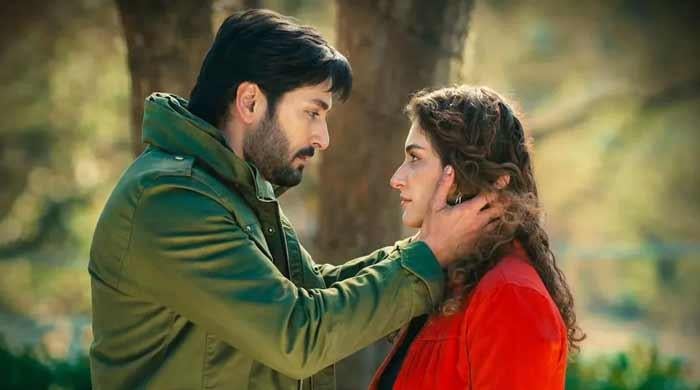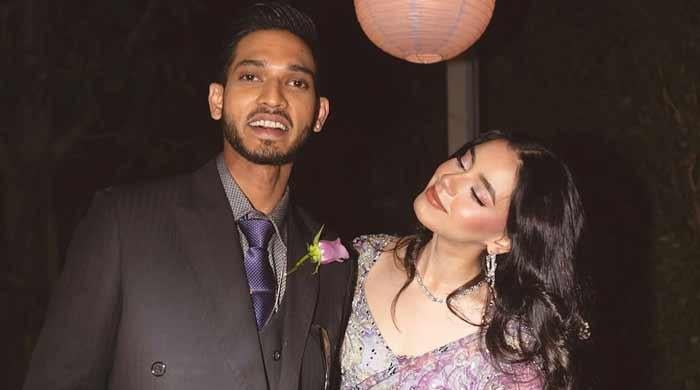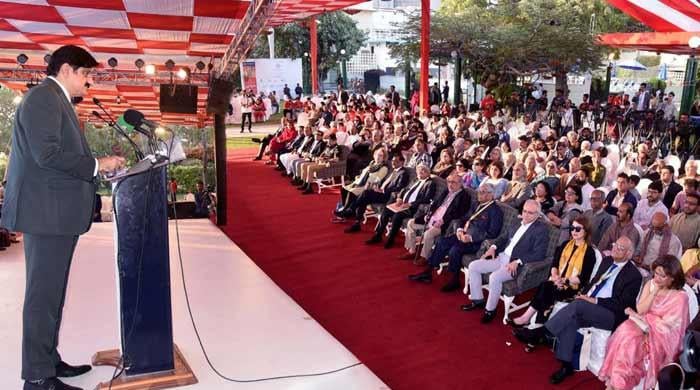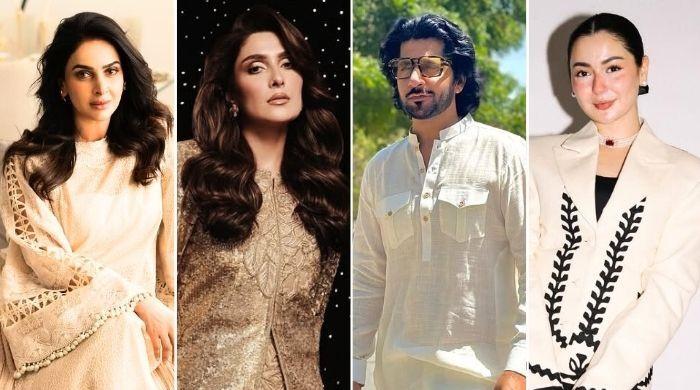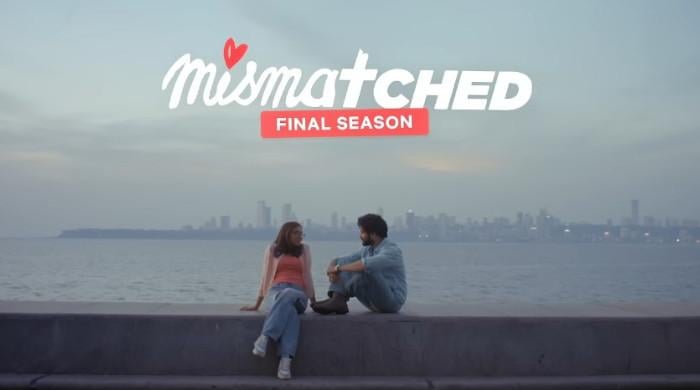Pakistan's track record busts Indian journalist's 'one-way street' cultural exchange claim
From Dilip Kumar’s Nishan-e-Imtiaz to concerts by Sonu Nigam and Kanika Kapoor
June 27, 2025
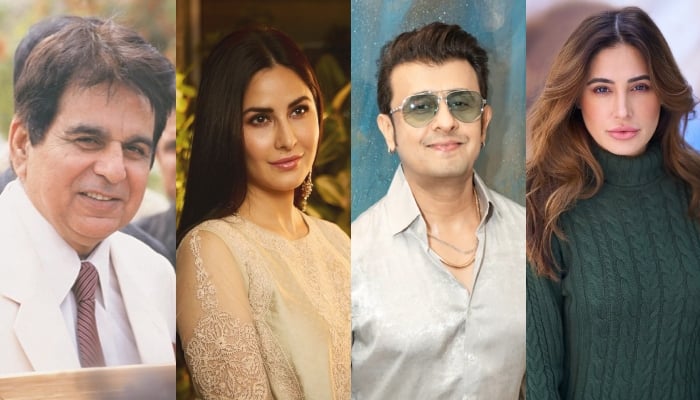
Indian journalist Rajdeep Sardesai recently tweeted a question aimed at Pakistan, asking why the country — despite welcoming Pakistani legends like Nusrat Fateh Ali Khan and Mehdi Hassan in India — never hosted iconic Indian singers such as Lata Mangeshkar, Asha Bhosle, or Kishore Kumar.
However, the notion that cultural exchange between the two neighbouring nations has been one-sided does not hold up against historical facts.
But this claim overlooks decades of cultural exchanges and goodwill shown by Pakistan towards Indian artists — a history that includes visits, concerts, awards, and brand collaborations involving some of Bollywood’s biggest names.
Pakistan has always welcomed Indian artists, inviting and honouring many of them over the years, proving that cultural ties have been mutual rather than one-way.
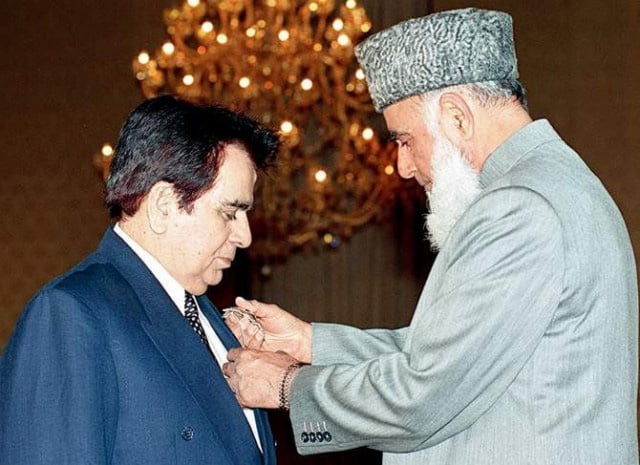
Take, for example, the late Dilip Kumar, one of Indian cinema’s most revered actors, who was invited as a state guest by then-President Rafiq Tarar in 1998. He was honoured with Pakistan’s highest civil award, the Nishan-e-Imtiaz, reflecting a deep respect for his art.
Earlier, during the 1980s under General Zia-ul-Haq’s regime, veteran actor Shatrughan Sinha made multiple visits to Pakistan, further cementing cultural ties despite political strains.
Music has also been a vital bridge between the two countries. Sonu Nigam performed in Karachi in 2004 to enthusiastic crowds, while Kanika Kapoor’s 2016 concert in Islamabad was part of peace-building cultural initiatives. Popular singers like Lucky Ali in 2001, Mika Singh in 2013, and Punjabi icon Sukhbir during the mid-2000s and early 2010s have all performed at various public and private events in Pakistan, winning admiration from fans.
In the realm of cinema and fashion, Bollywood stars have often been brand ambassadors for Pakistani companies. Katrina Kaif, Kareena Kapoor, Sonam Kapoor, and Nargis Fakhri have all represented Pakistani brands in advertising campaigns, highlighting a shared cultural market despite political tensions. In 2005, Saif Ali Khan and Katrina Kaif even performed in Lahore at private events, receiving warm welcomes.
Moreover, Indian actor Raza Murad has also had multiple visits to Pakistan in 2014 and 2016.
These examples clearly show Pakistan’s openness to Indian artists. Yet, the reality is more complicated on the Indian side. Pakistani cricket players have been banned from the Indian Premier League (IPL) since 2008, restricting sporting exchanges. Whenever there’s a cricket or sporting event involving the two countries, controversies and disruptions often follow. Moreover, Indian actors working alongside Pakistani talent face online abuse and calls for boycotts.
The latest flashpoint has been the Punjabi film Sardaar Ji 3, starring Indian superstar Diljit Dosanjh and Pakistani actress Hania Aamir.
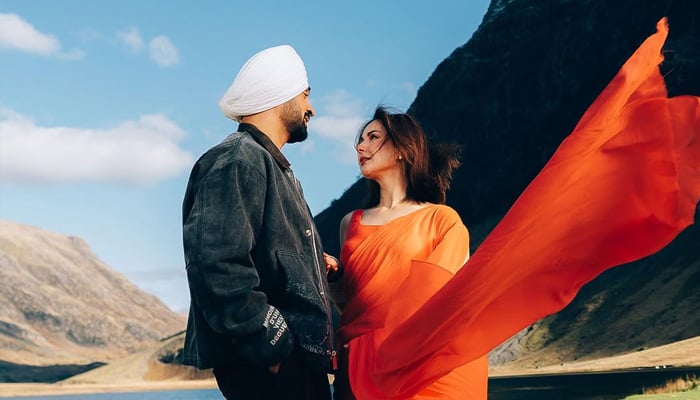
Despite the recent military tensions and calls for a ban from certain Indian factions, the film’s producers chose to release it overseas and in Pakistan — not in India. Pakistanis have celebrated the movie’s inclusion of Hania, welcoming the collaboration, which underscores the country’s commitment to cultural exchange even in difficult times.
This history and the ongoing support for cross-border artistry suggest that the narrative of a “one-way street” in cultural exchanges is misleading. Pakistan has consistently respected Indian art and artists, providing a platform and honouring talent regardless of nationality. Meanwhile, India’s actions, from sporting bans to social media hostility, paint a different picture.
Ultimately, true cultural exchange requires openness and respect on both sides — something Pakistan has long upheld, even when political circumstances make it challenging.




